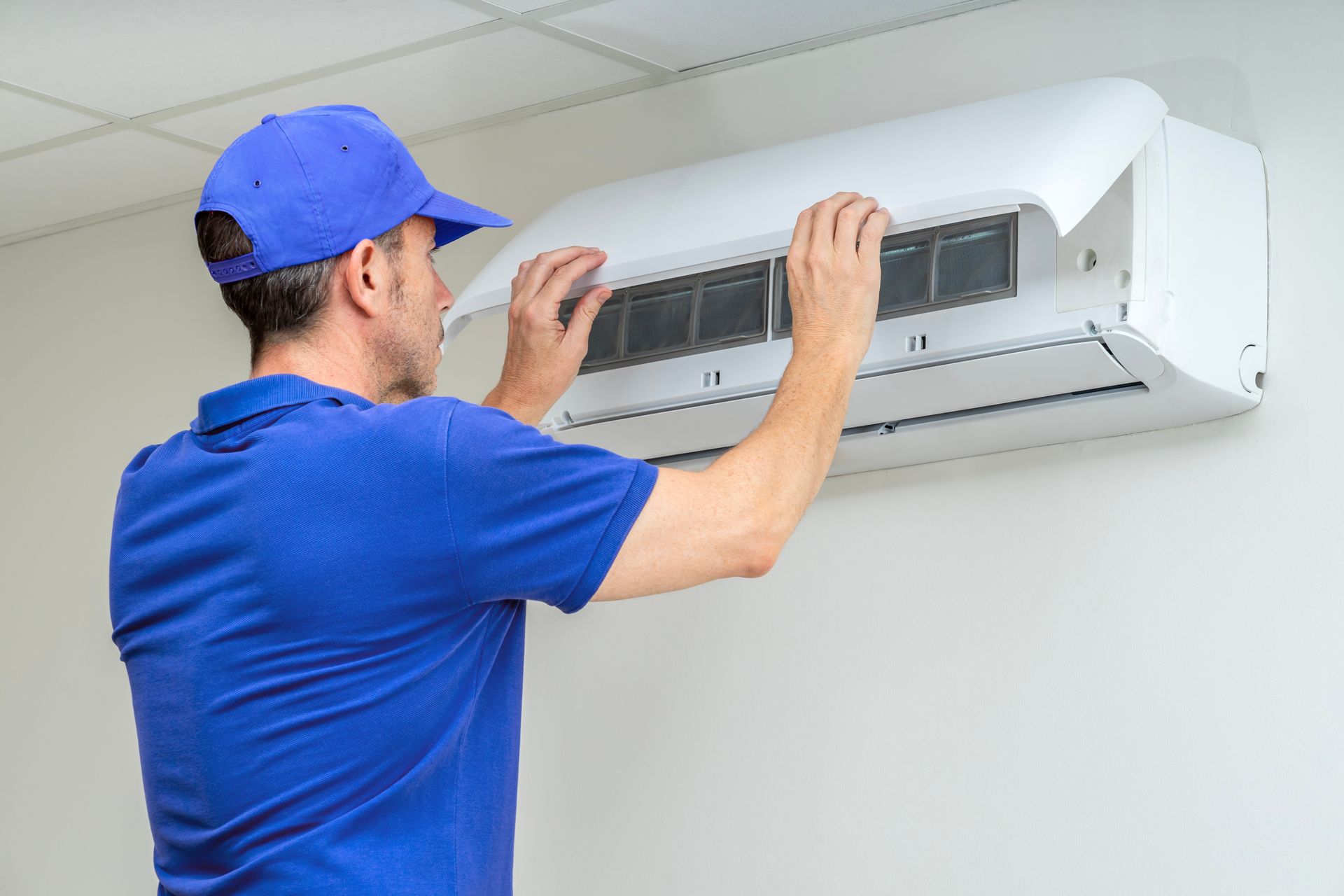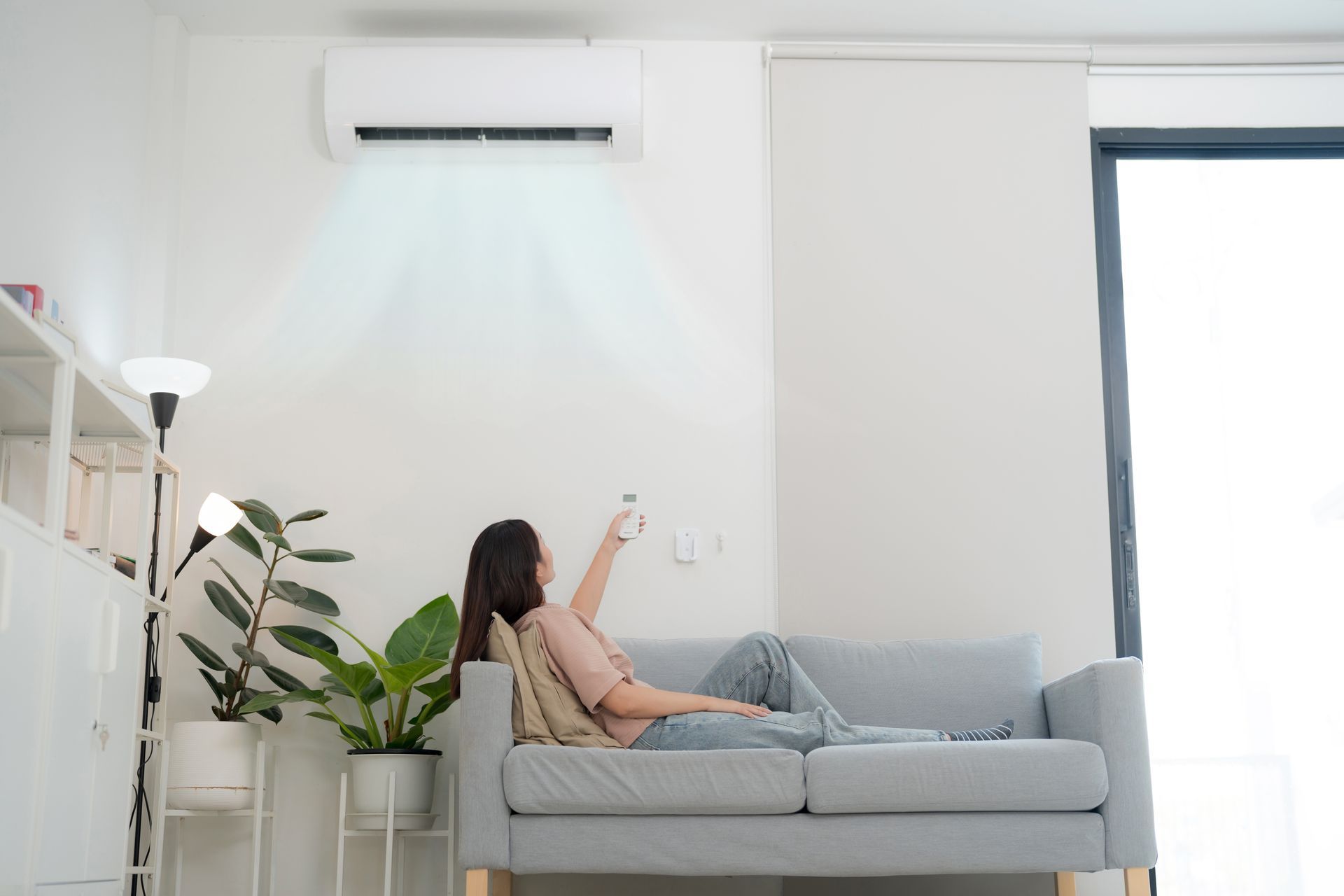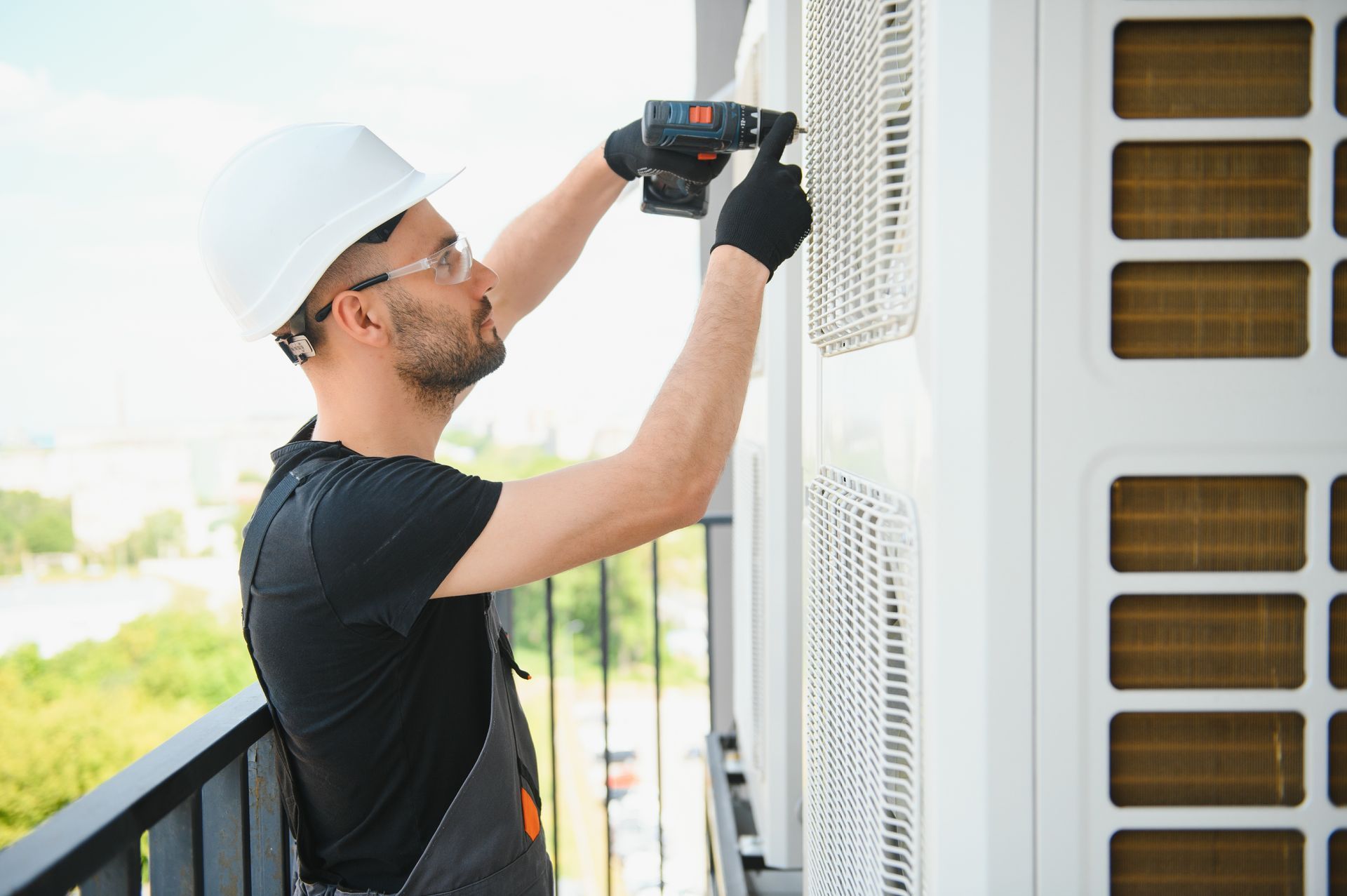Top 10 HVAC Maintenance Tips for Year-Round Efficiency

Keeping your HVAC system in top shape is essential for staying comfortable and saving energy bills throughout the year. Regular maintenance can improve efficiency, extend the life of your system, and prevent costly repairs. Here are the top 10 HVAC maintenance tips to help you maintain year-round efficiency.
1. Replace the Air Filter
Replacing your HVAC system's air filter is one of the simplest yet most effective ways to keep it running efficiently. Dirty filters restrict airflow, forcing your system to work harder and use more energy. Check your filter monthly and replace it every 1-3 months, depending on usage and air quality in your area.
2. Cleaning the Outdoor Unit
The outdoor unit, or condenser, can accumulate dirt, leaves, and other debris over time. This buildup can block airflow and reduce efficiency. Every few months, inspect the unit and clean it using a garden hose to wash away dirt. Be careful not to damage fins, and ensure the unit has at least two feet of clearance.
3. Check for Leaks in Ductwork
Leaky ducts can lead to energy loss, causing your HVAC system to work harder. Inspect visible ductwork for any signs of leaks or damage. Seal small leaks with duct tape or a specialized duct-sealing material. If you suspect more significant issues, consider calling a professional for a thorough inspection and sealing.
4. Keep the Thermostat Accurate
An accurate thermostat ensures your system isn't working harder than necessary. Check that your thermostat is calibrated correctly, and consider upgrading to a programmable or smart thermostat if you still need to do so. These devices can help you manage temperature settings automatically, saving energy and money.
5. Schedule Professional HVAC Maintenance
Even if you handle regular maintenance tasks yourself, scheduling professional HVAC maintenance at least once a year is essential. A technician will inspect your system, clean internal components, check refrigerant levels, and ensure everything is in working order. Regular check-ups can catch issues early and extend the life of your HVAC system.
6. Improve Airflow Around Vents
Blocked or closed vents can disrupt airflow, causing your system to work harder. Keep furniture, curtains, and other objects away from vents and registers. Ensure all vents are open, even in rooms you don't use often, to help the system distribute air evenly.
7. Check and Clean the Drain Line
Your HVAC system's drain line removes moisture produced during the cooling process. Over time, it can become clogged with dirt, algae, or mold, which may lead to leaks or water damage. To prevent clogs, pour a small amount of vinegar into the drain line every few months to keep it clean and functioning correctly.
8. Protect the System During Extreme Weather
Extreme weather, like heavy rain or snow, can damage your HVAC unit. Cover the outdoor unit during harsh winter weather to protect it from snow and ice buildup if possible. However, remove any cover before turning on the system, as running it with a cover can cause overheating.
9. Regularly Testing the System
Even when not used, testing your HVAC system periodically can help you spot problems early. Run both heating and cooling modes briefly each season to ensure they work correctly. This can prevent sudden breakdowns when you need your HVAC the most.
10. Annual Energy Audit
An energy audit can help you identify areas where your home may lose energy, like poor insulation or drafty windows. Fixing these issues can help your HVAC system run more efficiently. Many utility companies offer free or low-cost energy audits, making this a valuable step toward year-round savings.
By following these tips, you can keep your HVAC system running efficiently all year, saving energy costs and avoiding costly repairs
Need help with HVAC maintenance? Contact Old School Cooling for expert service today!
Disclaimer: The information on this website and blog is for general informational purposes only and is not professional advice. We make no guarantees of accuracy or completeness. We disclaim all liability for errors, omissions, or reliance on this content. Always consult a qualified professional for specific guidance.
Search Blog
Recent Posts

Contact Us
Contact Us
We will get back to you as soon as possible.
Please try again later.
Quick Links
Our Services
Contact Info
2540 S. Military Trail, West Palm, Fl, 33415
Working Hours
Open 24/7
All Rights Reserved.
Website Designed & Managed by Oamii.



